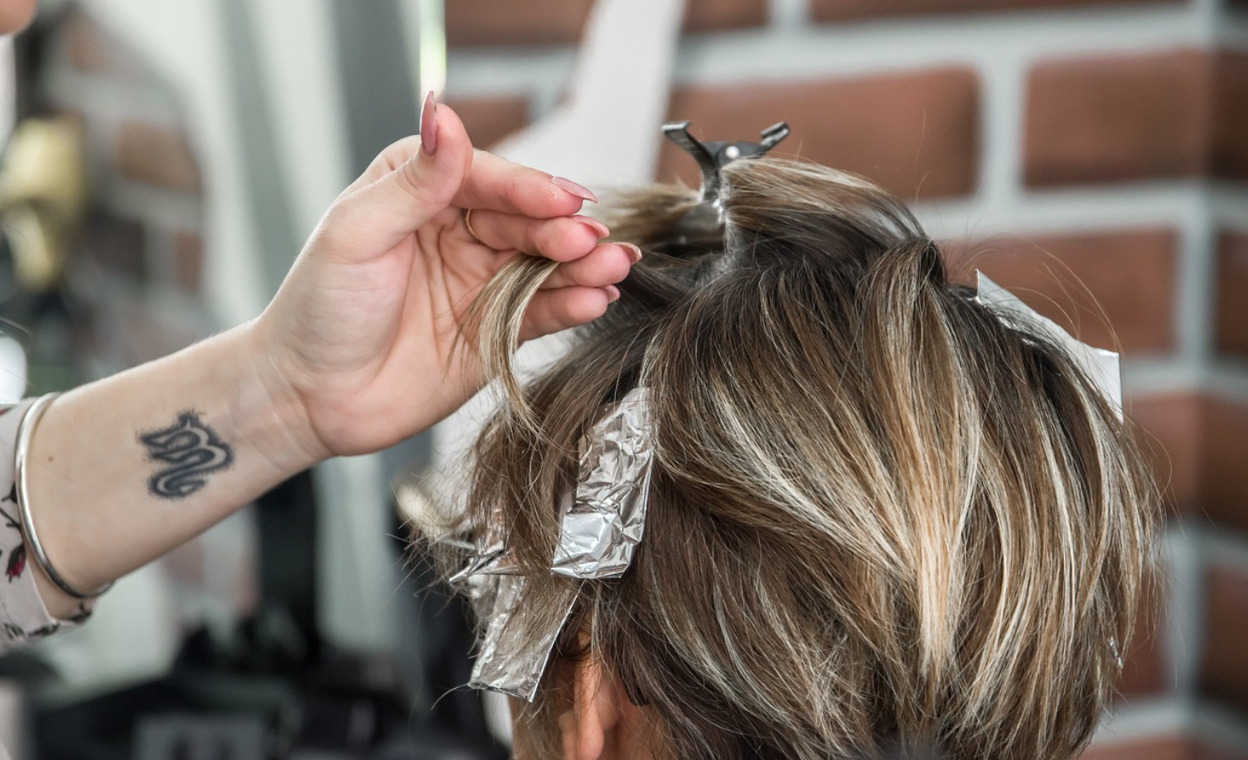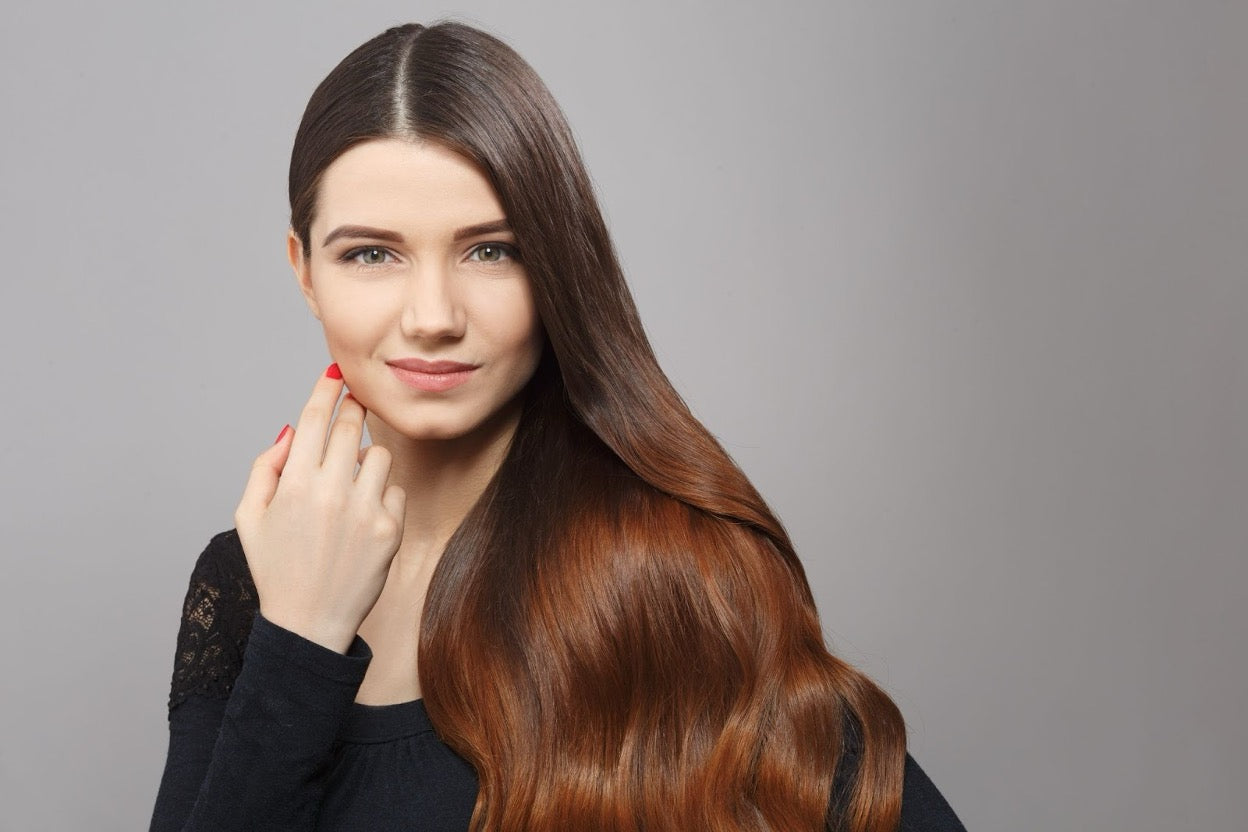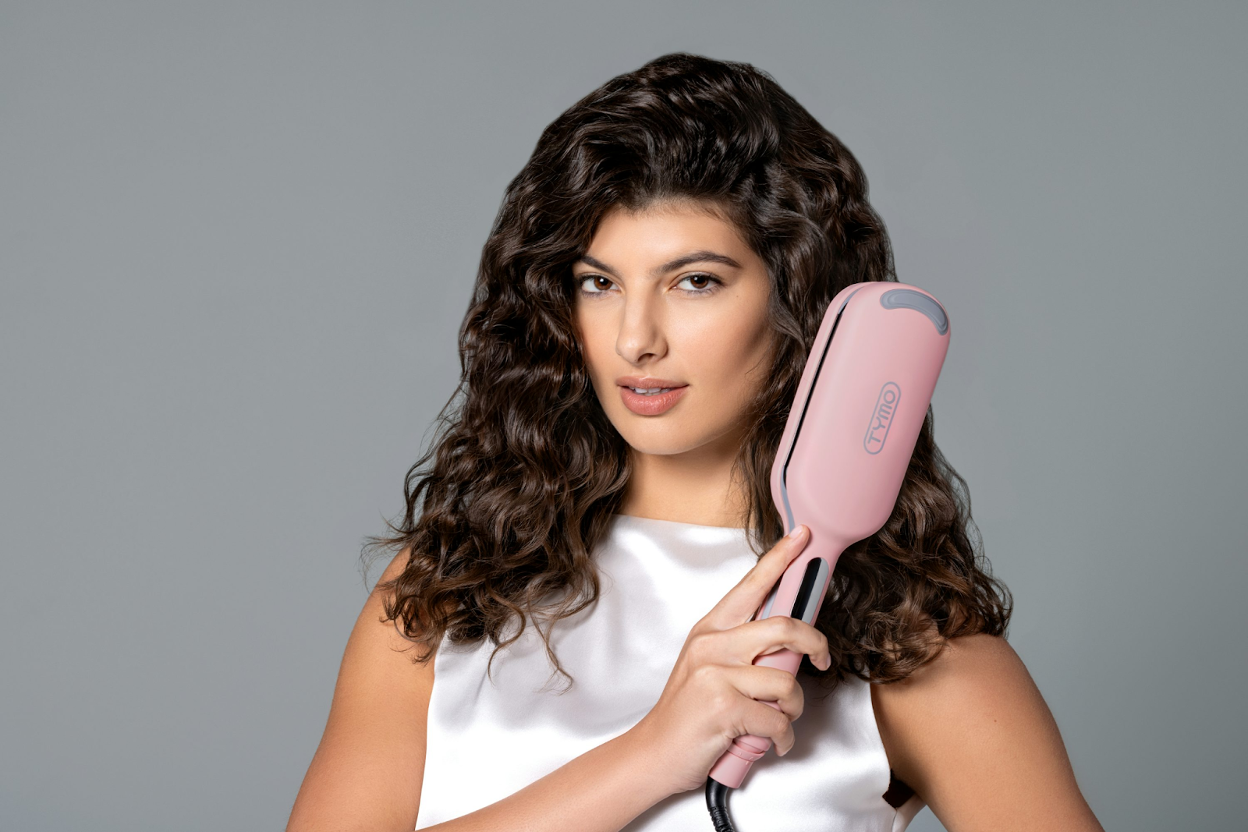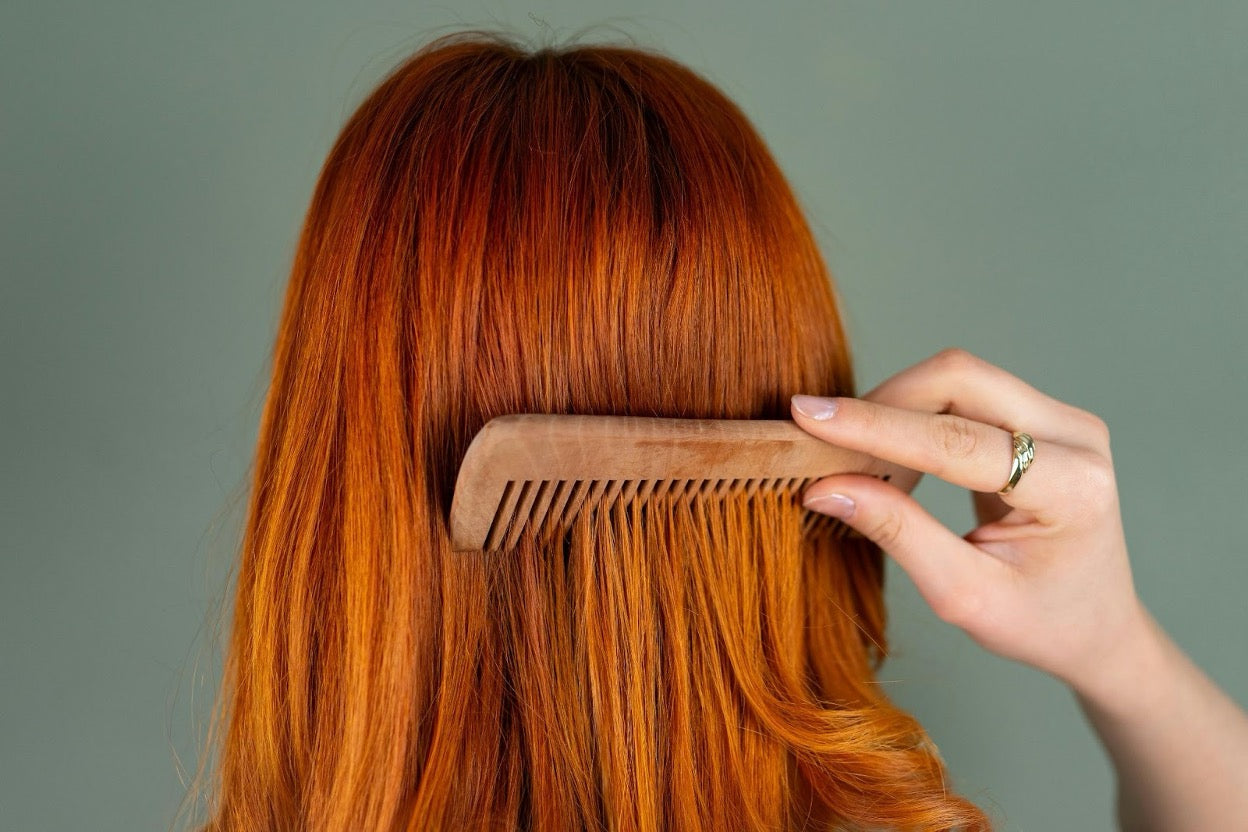Amla Oil vs Rosemary Oil for Hair Growth: Reviews, Usage, Pros & Cons
BY TRYBELLO
Nov 19, 2025

Key Takeaways
- Amla oil strengthens hair follicles, delays premature greying, and improves overall hair texture due to its nutrient-rich composition.
- Rosemary oil stimulates scalp circulation and inhibits DHT (the hormone linked to hair loss), showing effectiveness in supporting hair growth.
- Amla oil works best for dry, damaged hair and texture improvement, while Rosemary oil targets hair loss prevention and scalp health.
- Trybello Hair Helper Spray combines clinically-proven natural ingredients like biotin, caffeine, and castor oil in an easy-to-use formula that delivers visible results in just 12 weeks.
What is Amla Oil?
Amla oil comes from the Indian gooseberry fruit, a powerhouse ingredient that's been treasured in Ayurvedic medicine for centuries. The oil is created by infusing dried or fresh amla fruits in carrier oils like coconut or sesame oil, allowing the fruit's incredible nutrients, like vitamin C and antioxidants, to transfer into the oil. Amla oil doesn't just target one issue; it nourishes your scalp, strengthens your hair from root to tip, and even helps maintain your hair's natural color.
Benefits of Amla Oil
- Strengthens Hair Follicles: Amla oil delivers deep nourishment to your scalp, fortifying hair follicles and reducing breakage. Many users notice their hair feels stronger and more resilient after just a few weeks of consistent use.
- Reduces Premature Greying: One unique benefit of Amla oil is its ability to help maintain your hair's natural pigmentation. The high vitamin C content supports melanin production, which can delay the appearance of grey hairs.
- Promotes New Growth: The nutrient profile of Amla oil creates an optimal environment for hair growth by stimulating follicles and encouraging new hair development.
- Improves Hair Texture: Regular Amla oil users often rave about how soft and shiny their hair becomes. The oil helps smooth the hair cuticle, resulting in hair that's not just thicker, but noticeably more lustrous.
How to Use Amla Oil
Warm a small amount of oil between your palms, then massage it directly into your scalp using circular motions. Work it through to your hair ends, paying special attention to thinning areas. For best results, apply the oil once or twice weekly. You can leave it on for one to two hours for a quick treatment, or apply it before bed and wash it out in the morning for deeper nourishment.
Potential Side Effects
While Amla oil is generally safe, some users experience mild scalp irritation or dryness, especially when using it too frequently. Always do a patch test before applying Amla oil to your entire scalp.
“Doctor-Approved Natural Spray Rapidly Boosts Growth & Thickness.
Why 100,000+ Women Are Switching to Trybello!"
Join over 100,000 happy customers who've transformed their hair with our doctor-formulated spray in just 12 weeks, rated 4.8/5 by 40,000+ real users.
Proven Natural Ingredients
- • Caffeine Extract – Blocks DHT and boosts blood flow to follicles
- • Biotin – Direct scalp absorption, no pills needed
- • Castor Oil – Soothes inflammation and locks in moisture
- • Rice Water Extract – Strengthens hair and reduces shedding
120-Day Growth Guarantee: No results? 100% money back, no questions asked.
What is Rosemary Oil?

Rosemary oil stimulates scalp circulation and blocks DHT hormone, working effectively to support hair growth.
Rosemary oil is an essential oil extracted from the fragrant leaves of the rosemary plant. While it's been used in traditional medicine for ages, it's now gaining serious attention in the hair growth world. Recent studies have shown it can be just as effective as some clinical hair loss treatments.
Benefits of Rosemary Oil
- Stimulates Scalp Circulation: Rosemary oil increases blood flow to your hair follicles, which means more oxygen and nutrients reach the areas where your hair grows. This improved circulation can wake up dormant follicles and encourage new growth.
- Blocks DHT Hormone: One of rosemary oil's most impressive benefits is its ability to reduce the effects of DHT (dihydrotestosterone), the hormone responsible for shrinking hair follicles and causing pattern hair loss.
- Comparable to Clinical Treatments: Studies have demonstrated that rosemary oil can work as effectively as 2% Minoxidil (a common hair growth medication) but with fewer side effects.
How to Use Rosemary Oil
Because rosemary oil is highly concentrated, never apply it directly to your scalp without diluting it first. Mix 3–5 drops of rosemary oil with a tablespoon of carrier oil like coconut, jojoba, or olive oil. Massage the diluted mixture into your scalp 3–4 times per week, leaving it on for at least 30 minutes before washing.
Potential Side Effects
Undiluted rosemary oil can cause skin irritation or allergic reactions. This oil isn't recommended for pregnant or breastfeeding women, or people with epilepsy or high blood pressure. Always start with a patch test.
User Reviews

Amla and rosemary oils offer natural hair care benefits, though results and tolerance vary significantly among users.
Amla Oil
Users report noticeable improvements in hair conditioning and shine, with the oil working particularly well for dry, textured hair and flaky scalps. Long-term users appreciate its ability to make hair soft and silky, with some maintaining consistent use for over five years. Many find it less heavy than coconut oil while still delivering strong moisturizing benefits.
Some users see no improvement in hair growth or strength despite regular use. Common complaints include a thick texture that weighs hair down, excessive hair fall during application, and a strong scent that requires multiple washes to remove. The oil can leave hair feeling sticky and tangled, and may cause dandruff in some cases. Overuse leads to dryness, and lighter hair shades may experience temporary discoloration.
Rosemary Oil
Users report less scalp itching compared to pharmaceutical alternatives and appreciate having a natural option that delivers measurable improvements in hair density and growth.
Common complaints include skin irritation, redness, and allergic reactions when not properly diluted. Some experience scalp inflammation, and the oil can actually cause hair loss if used excessively or incorrectly.
Comparison Table: Amla Oil vs Rosemary Oil
| Feature | Amla Oil | Rosemary Oil |
|---|---|---|
| Source | Indian gooseberry fruit | Rosemary herb leaves |
| Key Benefits | Strengthens hair, reduces greying, nourishes scalp | Stimulates blood flow, blocks DHT, and fights dandruff |
| Hair Growth Mechanism | Nourishes follicles with antioxidants | Improves circulation, anti-inflammatory |
| Application Frequency | 1–2 times weekly | 3–4 times weekly |
| Dilution Required | Optional | Mandatory |
| Common Side Effects | Rare scalp irritation, dryness | Possible irritation, avoid in pregnancy |
| Best For | Hair texture, shine, pigmentation | Hair loss prevention, scalp health |
| Texture | Can feel sticky | Lighter when diluted properly |
Trybello Hair Helper Spray: An Efficient Option

Trybello Hair Helper Spray combines caffeine, biotin, castor oil, and rice water extract in a convenient formula that shows results within 12 weeks.
If you love the idea of natural hair growth support but find yourself hesitant about the commitment required for traditional oils, you're not alone.
Trybello Hair Helper Spray was developed specifically to bridge this gap. Instead of choosing between amla's nourishing benefits and rosemary's circulation-boosting properties, this doctor-formulated spray combines multiple clinically proven ingredients in one easy-to-use formula.
What Makes It Different:
The spray combines caffeine extract (which blocks DHT and improves blood flow to follicles, similar to rosemary oil's mechanism), biotin for direct scalp absorption and hair strengthening, and castor oil to soothe inflammation and lock in moisture (echoing amla oil's nourishing properties).
Rice water extract adds an extra layer of protection by reducing shedding and strengthening each strand. You can simply spray directly onto your scalp, massage it in, and you're done. It fits seamlessly into any routine, morning or night.
While traditional oils typically require 3–6 months of consistent use before visible changes, most Trybello users notice improvements in hair thickness and reduced thinning within 12 weeks.
Every bottle comes with a complete 120-Day Growth Guarantee. If you don't see the thicker, healthier hair you're hoping for, you receive a full refund, no questions asked. This guarantee reflects the confidence behind thousands of positive customer reviews and a 4.8/5 rating from real users.
For those seeking natural, effective hair growth support without the hassle of traditional oils, Trybello provides a modern, US-made solution backed by both science and a genuine satisfaction guarantee.
Get Trybello Hair Helper Spray Today →
Frequently Asked Questions (FAQs)
Trending Topics
See our latests posts #TRYBELLO












